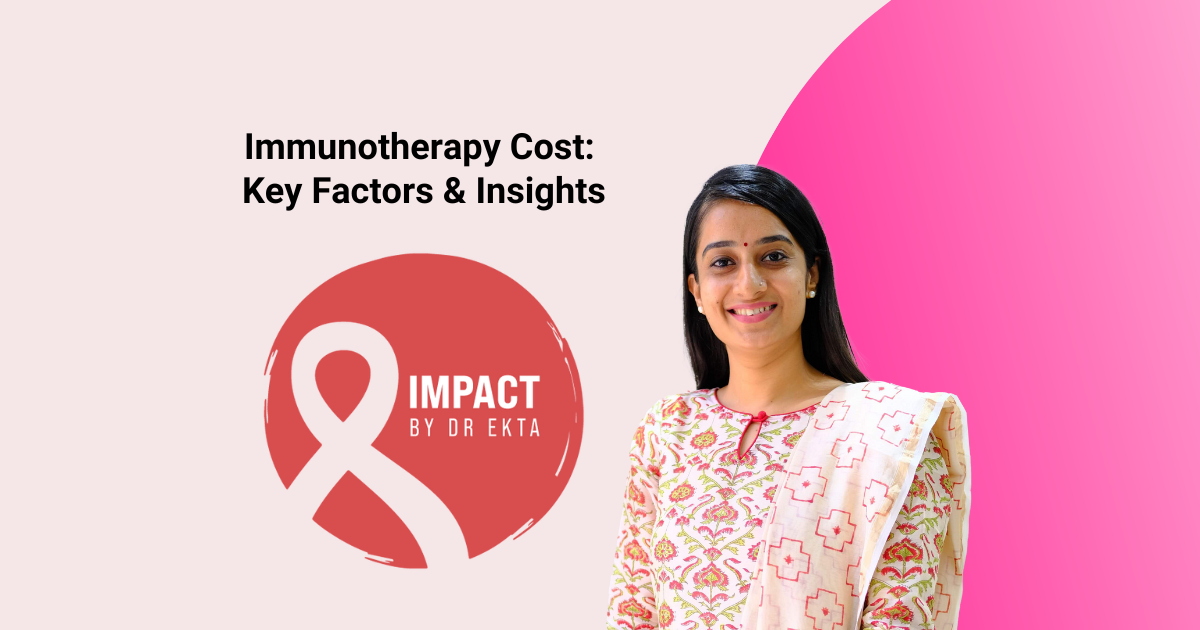Immunotherapy has revolutionized cancer treatment by harnessing the body’s immune system to fight cancer cells. It’s being used for a range of cancers such as melanoma, lung, kidney, and certain blood cancers. However, one of the most pressing concerns for patients and families is the cost. In this blog, we’ll explore the factors influencing immunotherapy cost, common pricing ranges, and what patients need to know before opting for this treatment.
What Is Immunotherapy?
- Immunotherapy is a type of biological therapy that boosts the immune system to identify and destroy cancer cells.
- It includes immune checkpoint inhibitors, CAR T-cell therapy, monoclonal antibodies, and cancer vaccines.
- This treatment is used when conventional therapies like chemotherapy or radiation may not be effective or feasible.
Key Factors That Influence Immunotherapy Cost
The cost of immunotherapy is not fixed, it varies depending on multiple medical, logistical, and financial aspects:
- Type of Immunotherapy
- Monoclonal antibodies may cost less than personalized CAR T-cell therapy.
- Checkpoint inhibitors like pembrolizumab or nivolumab have standard but still high prices.
- Cancer Type and Stage
- Advanced-stage or metastatic cancers may require prolonged or intensive therapy.
- Some cancers need combination therapy, which increases cost.
- Dosage and Duration
- Most treatments are administered every 2–3 weeks for several months or even years.
- The cumulative cost builds up with ongoing sessions.
- Hospital and City
- Metro cities like Mumbai or Delhi may charge more due to advanced infrastructure and higher facility fees.
- In cities like Ahmedabad or Indore, costs might be relatively lower.
- Government or Insurance Support
- Patients enrolled under schemes like Ayushman Bharat or private insurance may receive partial or full coverage.
Average Immunotherapy Cost in India
Immunotherapy pricing is substantially higher than conventional therapies. Below is a general estimate:
- Checkpoint inhibitors: ₹1,50,000 to ₹4,00,000 per cycle
- CAR T-cell therapy: ₹30,00,000 to ₹45,00,000 per treatment
- Monoclonal antibodies: ₹80,000 to ₹1,80,000 per dose
- Cancer vaccines: ₹2,00,000 to ₹4,00,000 annually
These prices are for reference and may change based on patient profile and hospital policies.
Additional Costs Associated with Immunotherapy
Many patients overlook the indirect expenses that come with immunotherapy:
- Diagnostic tests such as PET scans, biopsies, or blood work
- Supportive medicines like steroids, antiemetics, or antibiotics
- Hospital stay or day-care charges
- Doctor consultations and follow-ups
- Travel and accommodation if treatment is done outside the home city
Insurance and Government Assistance
To manage immunotherapy cost, patients can explore these options:
- Ayushman Bharat Yojana – Covers some immunotherapy drugs under approved cancer treatment packages
- Employee State Insurance (ESI) – If employed under ESI-covered organizations
- Private Insurance Policies – Many modern plans now include coverage for immunotherapy as part of cancer care
- Central Government Health Scheme (CGHS) – For central government employees and retirees
Can Patients in Tier 2 Cities Access Affordable Immunotherapy?
Yes, access is gradually improving:
- Ahmedabad, Pune, and Chandigarh have seen increasing availability of immunotherapy treatments.
- Public-private hospital tie-ups make it accessible to middle-income families.
- Oncology centers are adopting newer protocols at subsidized rates.
Tips to Manage Immunotherapy Cost Effectively
Patients and caregivers can plan better with these cost-control strategies:
- Get a second opinion to verify the necessity and type of immunotherapy
- Compare hospitals for cost estimates and available facilities
- Explore trial programs at research institutes offering free or subsidized drugs
- Discuss generic alternatives if available and approved by your oncologist
- Check if combination therapy is cost-effective or avoidable in early stages
Comparing Immunotherapy with Other Cancer Treatments
To understand the value of immunotherapy, consider these comparisons:
- Versus Chemotherapy
- Chemotherapy is generally cheaper but comes with more side effects.
- Immunotherapy is more targeted with fewer side effects, making it suitable for long-term management.
- Versus Targeted Therapy
- Targeted therapy also focuses on cancer-specific genes but is different from how immunotherapy activates the immune system.
- In some cancers, both are used together or sequentially.
Who Should Consider Immunotherapy?
While immunotherapy is not for every cancer or every patient, it is especially considered when:
- The cancer has relapsed after standard treatment
- Genetic testing shows responsiveness to checkpoint inhibitors
- There are fewer side effects or better outcomes expected with immunotherapy
- Quality of life is a priority, especially in older patients
Final Thoughts: Is It Worth the Cost?
The cost of immunotherapy in India is high, but its success in certain cancers—like melanoma, non-small cell lung cancer, or bladder cancer—has made it a promising option. It’s important to assess:
- Clinical effectiveness for your specific cancer
- Long-term outcomes
- Financial preparedness
By combining sound medical guidance with financial planning, patients can make informed choices about whether to pursue this innovative form of cancer treatment.
External Authoritative References:
- National Cancer Institute – https://www.cancer.gov/about-cancer/treatment/types/immunotherapy
- Ministry of Health and Family Welfare – https://www.mohfw.gov.in

